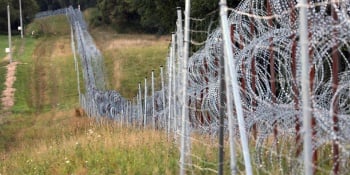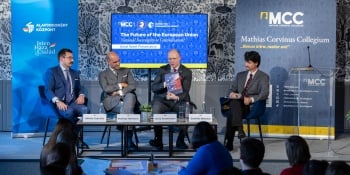Published: 26.08.2022

· The Ordo Iuris Institute asked the President of the Republic of Poland and the Minister of Foreign Affairs to consider Poland joining the proceedings against the Russian Federation pending before the International Court of Justice.
· After the Russian aggression against Ukraine, the authorities in Kiev applied to the ICJ to initiate such proceedings under the Convention on the Prevention and Punishment of the Crime of Genocide.
· Ukraine condemned Russian claims that there were acts of genocide in Ukraine in the Luhansk and Donetsk oblasts, which could justify the aggression.
· In July and August, Latvia, Lithuania, New Zealand and the United Kingdom applied to participate as parties to the Genocide Convention.
· In the event of participation in the proceedings, Poland will have an influence on the interpretation of the Convention made by the International Court of Justice.
Four days after the Russian aggression on February 24, 2022, Ukraine submitted a request to the International Court of Justice (ICJ) regarding the interpretation, application and fulfillment of the 1948 Convention on the Prevention and Punishment of the Crime of Genocide. In the application initiating the proceedings, Ukraine first demanded that the ICJ rule and state that no acts of genocide within the meaning of Art. 2 of the Convention. Accordingly, the Russian Federation may not lawfully take any action under the Convention, in or against Ukraine, to prevent or punish an alleged genocide. Ukraine also demands a ruling and a statement that the so-called The "special military operation" conducted by Russia since February 24, 2022 is based on a false claim of genocide.
Pursuant to Art. 63 of the ICJ Statute, in all cases where the interpretation of the Convention is questioned, each of the signatory states has the right to intervene in the proceedings. Considering Ordo Iuris' involvement in collecting materials on Russian war crimes since the beginning of the war in Ukraine (which led to the creation of an archive documenting war crimes committed against the Ukrainian population by the Russian army), the Institute asked the state authorities to consider the possibility of joining the ongoing proceedings . In this way, Poland would have an influence on the final interpretation of its statements to be made by the International Court of Justice.
- The filing of the application by Poland, together with the applications already submitted by Latvia, Lithuania, New Zealand and the United Kingdom, will lead to a binding interpretation of the Genocide Convention on all parties, with particular emphasis on the aspects of genocide claims in Ukraine. In particular, it is worth noting that the signatories of the Convention have a common interest in ensuring the correct interpretation of the provisions of the Convention, which, after all, contains binding obligations, emphasizes Veronica Turetta, an analyst at the Center for International Law.

• The pressure on the European Union’s southern borders has continued unabated since the great migration crisis of 2015.

• Representatives of Ordo Iuris took part in the second round of consultations ahead of the 58th Session of the UN Commission on Population and Development (CPD58) on global health policy.


• The European Union’s Council Conclusions on EU Priorities in UN Human Rights Fora in 2025 identify key areas of EU human rights activities at UN fora and refers to several universal human rights, such as freedom from torture and freedom of religion or belief.